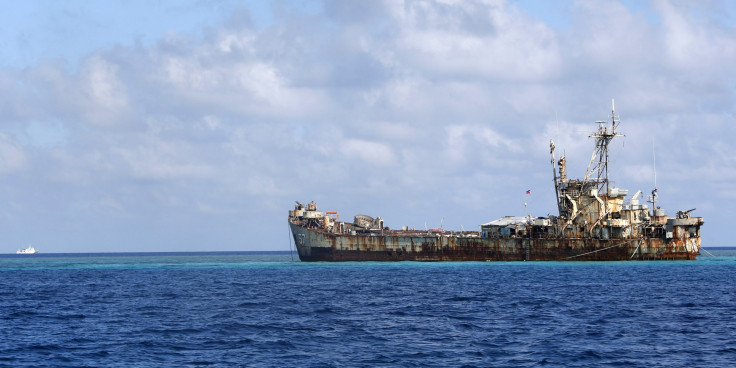Philippine-China South China Sea Dispute Over Spratly Islands: Human 'Buffer' Prevents Chinese Military Aggression

In terms of military resources and power, it’s clear that China has the upper hand in the disputed South China Sea waters over other regional opposition. For a small Filipino community located on one of several islands that China also claims, they have found civilian occupation is more effective than the Filipino military when it comes to maintaining sovereignty.
Pag-Asa is one of several tiny islands known collectively and more commonly as the Spratly Islands. The disputed islets, which are referred to the Chinese as Nansha Islands, and Kalayaan Islands to Filipinos, have become a hot-button issue in the Asia Pacific region because of their strategic location amid significant economic passageways in the South China Sea. Other Southeast Asian countries, such as Brunei, Vietnam and Malaysia, also lay claim to parts of the island chain, but China is the only country that claims the entire cluster.
Eugenio Bito-Onon Jr., the Filipino mayor of the Kalayaan Island Group, which encompasses Pag-Asa and other Philippine-claimed islands, said the small community of Filipinos that call the island home was the best defense against Chinese oppositional claims.
In an exclusive interview with CBS News, Bito-Onon said that the Pag-Asa Elementary School, and the neighboring homes, were an “exercise in sovereignty” and by just living there, more than any military presence, it remained a Philippine island. “When it’s military to military, when they just confront each other, it’s a normal war,” Bito-Onon continued. “It’s the civilian that seems to be the buffer.”
But as China’s presence grows around them, particularly with land reclamation activities on nearby islands, teachers at the Pag-Asa Elementary School found it increasingly important to educate students about the dispute.
“I don’t think they have a full understanding of what’s happening,” Daryl Kim Tabang, one of the teachers at the school, said in the report. “They probably don’t know what extent China has gone -- its Coast Guard blocking and intimidating Filipino fisherman, for instance. They probably just know that China is building islands [and] military bases.”
Bito-Onon says that staying and growing their community would likely stave off military confrontation or threats that jeopardized the safety or status of sovereignty of the island. The more people that stay in the community, the stronger their claim, even if they community is “dwarfed” by China, he said.
© Copyright IBTimes 2024. All rights reserved.






















